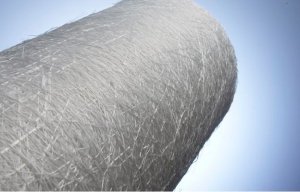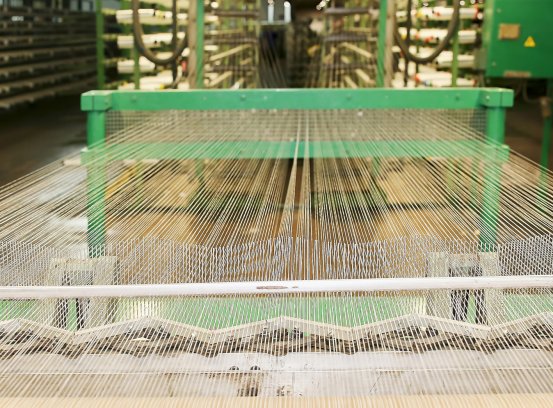
Owens Corning and Taiwan Glass enter supply agreement
Short glass fibre used in the new Elcrin iQ frop-in materials is 100% recycled content.

9th December 2021
Innovation in Textiles
|
Netherlands
SABIC is launching two initial grades in a new portfolio of compounds for thermoplastics incorporating pre-consumer recycled glass fibre diverted from the waste stream of industrial processes.
The polybutylene terephthalate (PBT) compounds, each reinforced with 30% pre-consumer recycled short glass fibre, offer mechanical properties and colour equivalent to the Elcrin iQ grades using virgin glass fibre reinforcement.
Elcrin iQ materials already help reduce plastic waste by using upcycled polyethylene terephthalate (PET) from discarded water bottles.
The short glass fibre used in the new Elcrin iQ materials contains 100% recycled content according to Underwriters Laboratories’ Recycled Content Validation procedure (UL 2809), following the mass balance approach.
Compared to virgin PBT reinforced with virgin glass fibre, LNP Elcrin WF006XXPiQ compound contains 67% recycled content and lowers carbon footprint by 29%, while LNP Elcrin WF0061XPiQ compound contains 55% recycled content and reduces carbon footprint by 24%.
The materials also deliver good structural performance in terms of stiffness and strength, chemical resistance and colourability for applications in the consumer electronics, automotive and electrical and electronics industries.
LNP Elcrin WF0061XPiQ compound also offers non-halogenated flame retardance. As drop-in replacements for incumbent virgin PBT and Elcrin iQ grades, the two new compounds enable customers to increase application sustainability without the need for design or tooling changes.
“We are continually pursuing new avenues to accelerate carbon neutrality for our materials across our portfolio” said Luc Govaerts, director of formulation and application development for SABIC’s Specialties Business. “This effort includes evaluating each component of our thermoplastic compounds and collaborating with others in the value chain to identify potential replacements that can drive circularity. Central to this process is the prioritisation of customer needs, so that greater sustainability goes hand-in-hand with performance, consistent quality and processing efficiency.”
SABIC plans to extend the use of pre-consumer recycled glass fibre to reinforced compounds based on other resins.

Business intelligence for the fibre, textiles and apparel industries: technologies, innovations, markets, investments, trade policy, sourcing, strategy...
Find out more